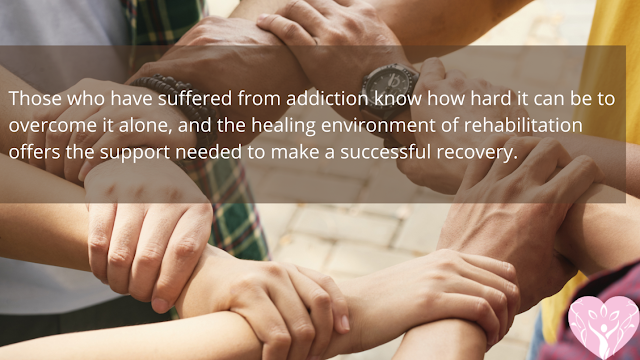Drug addiction is a complex yet treatable mental disorder. It is characterized by incessant and compulsive intake of drugs besides experiencing its harmful impacts on one's life. Addiction alters the brain structure and function of the individual, which is why they are unable to stop themselves from drug intake. Nasha Mukti Kendra helps individuals combat addiction with person-centered treatment plans. These treatment plans aim for long-term recovery that prevents relapse.
Addiction cannot be cured at home, where one has easy access to drugs and triggers that make them fall back to it. A holistic approach to treatment that a Nasha Mukti Kendra in Delhi follows heals individuals and not just the disease. It addresses the physical, emotional, social, and spiritual impairments caused by the addiction. The treatment plans offered by rehabilitation centers are life-changing; it reshapes the individual's life to a healthier and happier being.
What are The Treatments Offered at Nasha Mukti Kendra in Delhi?
● Stop drug usage
● Stay drug-free
● Productivity at work, society, and family
The drug addiction treatment provided includes:
●Counseling and psychological interventions
● Nasha Mukti medicine
● Withdrawal symptoms management
● Evaluation and treatment for comorbid conditions such as anxiety, depression, or other health problems
● Follow-up for relapse prevention
Patient-centered treatment with follow-up plans is essential for successful treatment. Treatment should be an amalgamation of medical and mental health services. Family support and care are important during recovery and the prevention of relapse.
How Does Nasha Mukti Medicine Help?
Medications used in addiction treatment help manage the withdrawal symptoms, prevent relapse and treat comorbid conditions.
Withdrawal
Nasha Mukti Kendra uses medications during the initial phase of drug addiction treatment, i.e., detoxification. If individuals stop the therapy at detoxification, they fall back to drug abuse. Researchers too advocate the use of medical devices and medicines in addiction treatment. The food and drug administration, November 2017, granted indication for NSS-2 Bridge, an electronic stimulation device to help reduce the opioid withdrawal symptoms. This device stimulates brain nerves by sending electrical impulses to the brain. The food and drug administration has also approved using a non-opioid medicine, Iofexidine, to ease opioid withdrawal symptoms.
Relapse Prevention
Individuals can take medications to re-establish their normal brain functions and manage cravings. Medications are available to treat various addictions ranging from opioid, tobacco, and alcohol withdrawal treatment. To learn more about the medications and their administration, you can contact a Nasha Mukti Kendra helpline number. Research is being done to curate medicines for cannabis and stimulant addictions. At times individuals are addicted to more than one kind of drug; in such cases, different combinations of medications are administered for recovery.
How Does Counseling Help in Drug Addiction Treatment?
Counseling is an indispensable part of addiction treatment. It helps patients:
● Modify attitude and behavior about drug use
● Developing healthy life skills
● Persist with other forms of treatment, such as medications
Therapies commonly used in addiction treatment include:
● Cognitive-behavioral therapy helps patients recognize, manage and cope with triggers that result in drug intake. Once you manage their triggers, there is no going back.
● Multidimensional family therapy is designed to address drug problems in adolescents and improve their family functioning.
● Motivational interviewing encouraged patients to change their attitudes and proceed with the treatment with vigor.
● Motivational incentives - abstinence from drugs is established with the help of positive reinforcement.
Inpatient treatment or residential treatment are considered the best drug addiction rehabilitation centers for addiction treatment. It required patients to shift to rehabilitation centers for 24-hour medical assistance and care. A highly structured treatment plan helps individuals avoid worldly triggers and access to drugs; a drug-free environment is essential during the treatment. Once individuals learn to manage their cravings, they can look forward to stepping into a healthier life.

Comments
Post a Comment